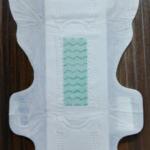Why Do My Joints Pain?
Joint pain can be a discouraging as well as debilitating experience that can prevent your everyday tasks and also quality of life. Whether it’s a sharp, shooting pain or a boring, consistent pain, understanding the underlying root causes of joint discomfort is essential for effective management and also relief. In this post, we will certainly explore several of the typical reasons why your joints might be injuring and discuss possible treatments and safety nets.
1. Osteoarthritis
Osteo arthritis, also known as degenerative joint disease, is one of the most prevalent form of joint inflammation. It happens when the safety cartilage that cushions completions of bones in your joints puts on suplemento alimenticio tonerin down in time. This can cause bone massaging versus bone, causing pain, rigidity, as well as swelling. Osteoarthritis commonly affects the knees, hips, hands, and spine.
To manage osteoarthritis discomfort, your physician might advise a mix of way of living alterations, such as weight monitoring and exercise, along with medicine and physical treatment. In severe situations, medical treatment, such as joint substitute, might be required.
2. Rheumatoid Arthritis
Rheumatoid joint inflammation is an autoimmune illness where the immune system mistakenly assaults the joints, creating inflammation, discomfort, as well as joint damage. It generally impacts the hands, wrists, and also feet, however can likewise include other joints throughout the body. Symptoms consist of joint rigidity, swelling, tiredness, as well as anorexia nervosa.
Therapy for rheumatoid joint inflammation intends to decrease swelling as well as pain, preserve joint function, and also avoid additional damage. This might include a combination of medications, physical treatment, as well as way of life adjustments. Early medical diagnosis as well as therapy are vital in taking care of the disease properly.
3. Gout arthritis
Gout is a kind of joint inflammation characterized by unexpected, serious attacks of discomfort, inflammation, as well as tenderness in the joints, many commonly the huge toe. It is triggered by the accumulation of uric acid crystals in the joints, bring about inflammation. Gout arthritis assaults usually occur at night and can be triggered by certain foods, alcohol, or stress.
To manage gout, your physician might prescribe medicines to decrease inflammation and reduced uric acid levels. They might also suggest nutritional adjustments, such as reducing the intake of purine-rich foods and enhancing fluid intake to aid clear out uric acid.
4. Injury or Overuse
Injuries, such as strains, stress, or fractures, can cause intense joint pain. Overuse of joints with repetitive motions or excessive exercise can likewise bring about persistent joint discomfort. Usual instances include tennis elbow joint, runner’s knee, as well as rotator cuff injuries.
Therapy for joint discomfort due to injury or overuse commonly involves remainder, using ice or warmth, physical therapy, and over the counter discomfort medicines. Extreme instances may require clinical treatment or surgery to fix the damaged joint.
5. Inflammatory Conditions
Various inflammatory conditions, such as lupus, psoriatic arthritis, and ankylosing spondylitis, can trigger joint discomfort. These problems include a defective immune system that strikes healthy and balanced tissues, consisting of joints.
Management of joint pain pertaining to inflammatory illness generally entails a combination of medicines to reduce inflammation, physical treatment, and also way of life modifications. Routine monitoring by a healthcare expert is very important to guarantee optimal monitoring of these problems.
Verdict
Joint pain can have multiple reasons, varying from degenerative problems like osteoarthritis to autoimmune diseases like rheumatoid arthritis. Comprehending the underlying reason for your joint discomfort is necessary for effective therapy as well as management. If you are experiencing persistent joint pain, it is very important to consult a healthcare expert for a correct diagnosis and tailored treatment plan. Bear in mind, early treatment as well as positive management can significantly improve your quality of life and also assist you gain back control over your joint health.









